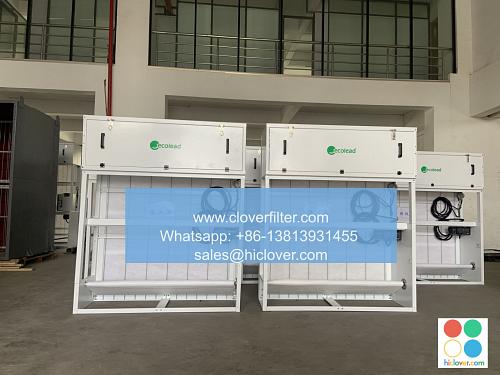The Role of Air Filters in Indoor Air Quality: Documentation and Analysis

Indoor air quality (IAQ) is a critical aspect of maintaining a healthy and comfortable living or working environment. One of the essential components in ensuring good IAQ is the use of air filters. In this article, we will delve into the role of air filters in indoor air quality, highlighting their importance, functionality, and various application areas.
Introduction to Air Filters and Indoor Air Quality
Air filters are devices designed to remove pollutants and contaminants from the air, improving the overall quality of the air we breathe. Indoor air quality is affected by various factors, including pollution from outdoor sources, indoor activities, and building materials. The use of air filters is crucial in minimizing the negative impact of these factors on IAQ. By removing particulate matter, gases, and other pollutants, air filters help create a healthier environment, reducing the risk of respiratory problems, allergic reactions, and other health issues.
Types of Air Filters and Their Applications
There are several types of air filters available, each with its unique characteristics, advantages, and application areas. Some of the most common types of air filters include:
* HEPA (High Efficiency Particulate Air) filters: These filters are designed to capture 99.97% of particles as small as 0.3 microns, making them ideal for applications where high-level filtration is required, such as in hospitals, laboratories, and cleanrooms.
* Activated Carbon filters: These filters are effective in removing gases, odors, and volatile organic compounds (VOCs) from the air, making them suitable for use in kitchens, bathrooms, and areas with high levels of air pollution.
* UV (Ultraviolet) filters: These filters use ultraviolet light to kill bacteria, viruses, and other microorganisms, making them ideal for applications where sterilization is required, such as in healthcare facilities and food processing industries.
* Electrostatic filters: These filters use electrostatic charges to attract and trap particles, making them suitable for use in residential and commercial buildings.
Application Areas of Air Filters
Air filters have a wide range of applications in various industries and settings, including:
* Residential buildings: Air filters are used in home ventilation systems to improve indoor air quality, reducing the risk of respiratory problems and allergic reactions.
* Commercial buildings: Air filters are used in office buildings, shopping centers, and other commercial establishments to maintain good IAQ, improving productivity and occupant health.
* Healthcare facilities: Air filters are used in hospitals, clinics, and other healthcare facilities to maintain sterile environments, reducing the risk of infection and improving patient health.
* Industrial settings: Air filters are used in manufacturing facilities, warehouses, and other industrial settings to remove pollutants and contaminants from the air, improving worker health and safety.
* Transportation systems: Air filters are used in vehicles, airplanes, and other transportation systems to improve indoor air quality, reducing the risk of respiratory problems and improving passenger comfort.
Benefits of Using Air Filters
The use of air filters has numerous benefits, including:
* Improved indoor air quality: Air filters remove pollutants and contaminants from the air, improving the overall quality of the air we breathe.
* Reduced risk of respiratory problems: By removing particulate matter and other pollutants, air filters help reduce the risk of respiratory problems, such as asthma and allergies.
* Increased energy efficiency: Air filters can help improve the efficiency of heating, ventilation, and air conditioning (HVAC) systems, reducing energy consumption and costs.
* Extended equipment lifespan: Air filters can help extend the lifespan of HVAC equipment by removing pollutants and contaminants that can damage the equipment.
Conclusion
In conclusion, air filters play a critical role in maintaining good indoor air quality, removing pollutants and contaminants from the air, and improving the overall health and comfort of occupants. With various types of air filters available, each with its unique characteristics and application areas, it is essential to choose the right filter for specific needs. By understanding the importance of air filters and their applications, we can create healthier, more comfortable environments, improving the quality of life for individuals and communities. You haven’t given me a prompt to work with. What would you like to talk about or ask? I’ll do my best to provide a helpful and informative response.

